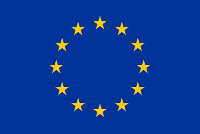Liberian human rights organisations demand right to due process and fair trial for detainees in a report presented in Geneva
Liberia’s review on the International Covenant on Civil and Political Rights was scheduled for March 2018. The human rights platform of the Liberian Civil Society Organizations’ prepared a “shadow” report in response to the list of issues that were raised based on the first report of the Liberian state to the Committee.
Rural Human Rights Activist Programme (RHRAP) and the Association of Female Lawyers of Liberia (AFELL) contributed to the CSO report, concentrating on issues regarding the criminal justice system of Liberia.
In 2009, only about 10 per cent of the 800 detained in Liberian prisons had been convicted of a crime, and were held in extended pre-trial detention in overcrowded jails and centres that lacked sanitation and health care. From June 2009, Liberia has taken measures to improve the situation, including the Magistrates Sitting Program implemented in the Monrovia Central Prison and all magistrate courts in Montserrado, as well as the three capital cities in Bong, Nimba, and Lofa counties, the report states.
However, the prisons in Liberia continue to be overcrowded and people are detained for long periods without access to justice.
The report of the CSO’s recommends upscaling the work of the Magistrates Sitting Program to all prisons and places of detention to speed up trials of pre-trial detainees, providing adequate resources for prosecutors and judicial officers to undertake effective prosecution, case management and adhere to criminal procedures, and strengthening the National Legal Aid Scheme. It also recommends speedy hearing of cases by the courts, and ensuring the use of probation and parole services.
Furthermore, the CSO report calls for the Supreme Court to mandate or ensure the introduction of fast track hearing at prison facilities in other counties. The Alternative Dispute Resolution (ADR) in the court’s system should be legalized to work towards addressing overcrowding in prison facilities. Finally, the Judiciary should deploy more public defenders in the counties.
Other key aspects of the report range from lack of political will and the removal of the provision in Domestic Violence Law that placed ban on female genital mutation practice in Liberia, and other sexual and gender based violence related issues, among others.
Grassroots efforts for improving access to justice in Liberia
RHRAP and AFELL, in collaboration with the Finn Church Aid (FCA), are currently implementing the project “Providing access to justice and gender sensitive legal awareness at grassroots level” in Lofa, Nimba and Bong Counties, with funding from the European Union (EU).
The two years programme is aimed at contributing to improving the Criminal Justice System (CJS) of Liberia and protecting the fundamental human rights and dignity of community residents.
In 2017, RHRAP & AFELL in collaboration with FCA provided trainings for correction officers, police officers, traditional, religious and community leaders, inmates (pre-trial detainees) and judges. The programme has a special focus on women and youth, and provides free legal representation for pre-trial detainees within the Gbarnga, Voinjama, and Sanniquille prisons.
Liberia needs to comply with its human rights obligations
Liberia ratified the International Covenant on Civil and Political Rights (ICCPR) in 2004. Liberia’s initial report on the implementation of the ICCPR was due in 2005. After 11 years of delay, Liberia submitted its first report in November 2016. The review on Liberia at the ICCPR that was scheduled for March, was postponed to July of this year 2018, resulting from the government absence.
It was a disappointment to the civil society organisations. However, CSO representatives plan to collectively engage government actors to comply with all obligations in the International Covenant on Civil and Political Rights (ICCPR). This will contribute to Liberia being placed inline with the international community concerning the promotion and protection of fundamental rights of citizens as provided for by the Universal Declaration of Human Rights (UDHR).
See full report
ICCPPR Implementation in Liberia – Report of Civil Society Organizations in Reply to the List of Issues, March 2018
The project “Providing Access to Justice and Gender Sensitive Legal Awareness at Grassroots Level” contributes to enhance the rule of law and the respect of the fundamental human rights of the most vulnerable prisoners in Liberia, most often women and youth.
The project is implemented in Lofa, Bong and Nimba counties in Liberia in 2017–2018. It’s funded by the European Union – The European Instrument for Democracy and Human Rights (EIDHR).
 Delegation of the European Union to Liberia
Delegation of the European Union to Liberia
Project Fact Page